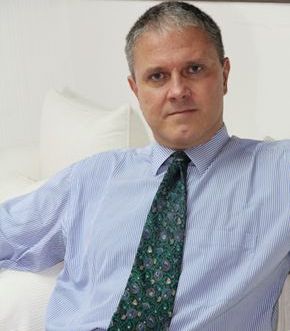'Italy and Spain: Parallel Destinies?' An Analysis by a Multicultural Observer
Italia e Spagna: Destini paralleli? This is the title of the e-book that was recently published by the Italian-Spanish economist who leads the European Union delegation in El Salvador. The unbearable lightness of being Latino in a globalized world is written on the cover of the essay, which uses the privileged point of view of an Italian with close ties to Spain to analyze analogies and differences between the crises in Italy and Spain.
|
|
Stefano Gatto was born in Turin in 1962. He graduated from Bocconi in Political Economy with a focus on International Economics, with Professor Carlo Secchi. "My career started in Madrid, in the private sector," says Stefano. "I went to Spain with the PIM Bocconi program in the late '80s. The program predates the Erasmus program and it allowed me to study at the ESADE Business School for one semester. My true aspiration was a diplomatic career, though"" remembers Stefano. In 1991, after completing a Master program in International Relations, he won a competitive exam for the European Commission and moved to Brussels, where he worked on foreign affairs for the EU, in the role of Economic Advisor of the European Commission in Brazil (1998-2002) and India (2002-2006). "My main objective during those years was to bring Europe's attention to the challenges and opportunities present in the countries that would later be called emerging countries," explains Stefano. In 2006 he became head of the EU election observation missions, overseeing elections in countries such as Venezuela, Angola, the Ivory Coast and Afghanistan. Since 2009 he has been EU delegation head in El Salvador, where "the most important issues are cooperation and security, urgent matters in a region that is the most violent in the world," says Stefano. Stefano defines himself as completely bicultural: "I not only feel both Italian and Spanish, but I also completely identify with Europe and I have strong ties to Latin America, where I've spent an important part of my life," he explains. He published an e-book only a few weeks ago which analyzes the economic crises in Spain and Italy synoptically "because in recent times there have been too many simplifications regarding the topic," he says. "I believe that I have a unique point of observation not only on how the two situations meet, but also on the differences that are important to note. Spain," he continues, "did a better job of taking advantage of its European placement and related funds than Italy, but it made the mistake of becoming only a services economy. Italy's strength, which is less exposed to international financial circumstances, is the existence of a production base for recovery," he says. "But that will only be possible when the political system, which is currently completely inept, can finally be reformed." What are his hopes for Italy's future? "The Monti government was very important because it renewed Italy's credibility around the world, but the reforms to make our country competitive once again need to continue." Would he move back home? "I would like to come back, in a role that would allow me to contribute to the internationalization of Italian society, because I believe there is unrealistic behavior rejecting globalization," he says. "However, I don't think it's a likely prospect, at least for the near future: this summer I will be going to a new destination, but I won't find out where until late spring." In a book that compares Italy and Spain, an afterward on soccer had to be included: "Italian and Spanish people will never agree when discussing soccer," he says, "because they see it from different perspectives. Italians are more focused on the result, without thinking too much about aesthetics, while the Spanish focus on phrasing, even at the expense of results," says Stefano, a Juventus fan at home and an FC Barcelona fan in Spain. "Watching Barça play is always a pleasure," he says, "even the (few) times they lose."
